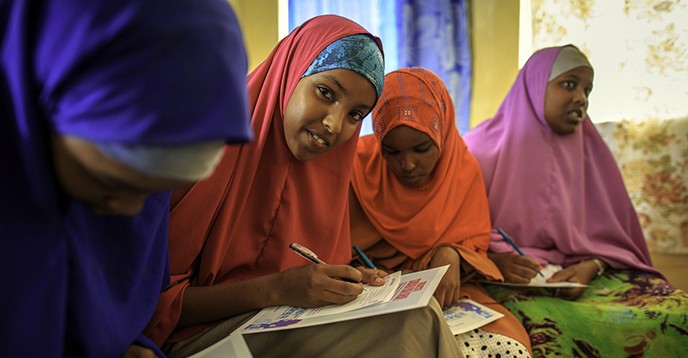Right to education
Education as a fundamental human right lies at the heart of UNESCO’s mission and is enshrined in the Universal Declaration of Human Rights (1948) and many other international human rights instruments.
The right to education is one of the key principles underpinning the Education 2030 Agenda and Sustainable Development Goal 4 (SDG4) adopted by the international community. SDG 4 is rights-based and seeks to ensure the full enjoyment of the right to education as fundamental to achieving sustainable development.
Yet millions of children and adults remain deprived of educational opportunities, many as a result of social, cultural and economic factors.
Education in itself is an empowering right and one of the most powerful tools by which economically and socially marginalized children and adults can lift themselves out of poverty and participate fully in society.
In order to do so there must exist equality of opportunity and universal access. Normative instruments of the United Nations and UNESCO lay down international legal obligations which recognize and develop the right of every person to enjoy access to education of good quality. This legal framework is considered of great importance by Member States and the international community in implementing the right to education.
UNESCO supports States to establish solid national legal and policy frameworks that create the foundation and conditions for the delivery and sustainability of quality education. In turn, governments must be held accountable to fulfill their legal and political obligations to provide good quality education for all and to implement and monitor education policies and strategies more effectively.









